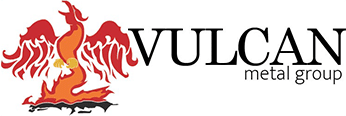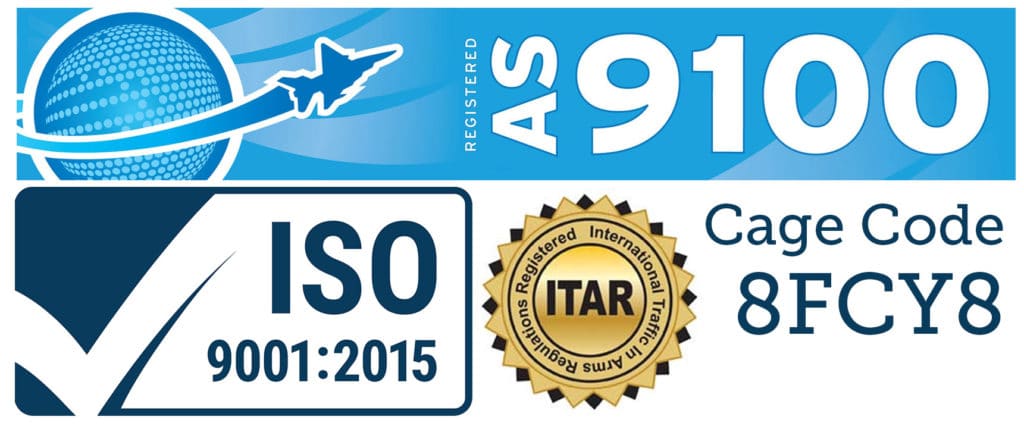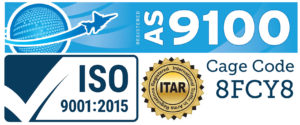Custom CNC Milled Parts for Rapid Prototyping and Production
If your component is ready to scale, we can help by moving your prototype to mass production. Vulcan Metal Group specializes in CNC milling, machining, and manufacturing short run specialty metal parts. Whether you need one part or a hundred, we can help deliver to spec CNC milling, turning and other machining ensuring that your project stays on track and on budget. We offer a wide range of CNC milling services, including custom prototyping, production parts, jigs and fixtures, tooling, and reverse engineering.
Milling Capabilities
Our CNC milling machines can produce parts with dimensions ranging from a few millimeters to several meters. We can accommodate a wide range of part sizes and complexities from bracket to tight tolerance tooling fixtures while holding all GD&T tolerancing call outs. We can achieve tight tolerances of 1um (micron) for critical dimensions. Our experienced machinists and advanced CNC equipment ensure the highest level of precision.
Surface Finishes
Vulcan Metal Group offers a variety of surface finishes to meet your specific requirements. Our surface finishing capabilities include:
- Milling
- Turning
- Grinding
- Polishing
- Anodizing
- Plating
- Welding
- Burnishing
- CMM inspection
CNC Milling Volume and Capability
We can produce custom milled parts from single prototypes to large production runs. Vulcan Metal Group has extensive manufacturing capabilities backed up by expert consultants allowing us to meet your project demands on time and on budget.
Rapid Prototyping Service
Our rapid prototyping service offers several advantages for product development, including the ability to quickly test and refine your product design before investing in expensive tooling and production. By using rapid prototypes our expert team can help you to identify and correct design flaws early in the development process, leading to higher quality products. We help you reduce development costs by eliminating the need for multiple rounds of tooling and production.
Why Clients Choose Vulcan Metal Group for CNC Machining and Rapid Prototyping
We have a proven track record of providing high-quality custom milled parts for a variety of industries from space to defense. Our experienced engineers and machinists can work with you to develop and produce prototypes and production parts that meet your exact specifications with a focus on high quality at the right cost. An example is where upon receipt of customer’s drawing, we determined that it had tighter radius call outs than necessary and after correcting the drawings we saved the customer both time and money.
We stock a wide variety of engineering-grade metals to meet your needs. This ability allows us to quickly produce your parts without the need for long lead times.
Vulcan Metal Group is certified to ISO 9001:2015, AS9100D, and is ITAR compliant. These credentials are just the starting point for our commitment and your minimum guarantee of quality and compliance with industry standards.
What is CNC milling?
CNC milling is a manufacturing process that uses computer-controlled cutting tools to remove material from a block. This process can be used to create a wide variety of parts with complex geometries and consistently accurate tight tolerances.
CNC Milling Benefits
CNC milling offers several benefits over traditional manufacturing methods, including increased accuracy and precision, reduced material waste, improved efficiency and productivity, greater flexibility, and versatility.
CNC Milling Applications
CNC milling is used in a wide variety of industries, here are some examples:
- Precision-engineered parts for aircraft, including engine components, structural components and landing gear; these parts are lightweight, strong, and durable to withstand harsh operating conditions.
- Automotive engine blocks, transmission housings and wheels. Strength, durability, and wear-resistance are crucial for automotive parts to meet performance and safety criteria.
- Medical devices, such as implants, prosthetics, and surgical instruments where precise, biocompatible parts are needed.
- Electronic components, such as circuit boards, connectors and housings produced to precise tolerances.
- Some consumer appliances, toys, and sporting goods components are produced by CNC milling to create high-quality, cost-effective products.
Ready to Talk?
We pride ourselves in our ability to source almost any material needed for your projects. Whether you need one part or a hundred, we can help deliver to-spec CNC and other machining to make sure your project stays on track and on budget. Call Vulcan Metal Group on +1 310.882.6841 or email usDesign Guidelines for CNC Milling Parts
When designing parts for CNC milling, it is important to consider the following guidelines:
- Check that your part dimensions are within the capabilities of our CNC milling machines.
- Specify your tolerances for all critical dimensions.
- Ensure the chosen material is compatible with our CNC milling equipment.
- Maintain sufficient wall thickness to avoid part deformation.
In general, it is important to maintain a minimum wall thickness of 0.06 inches (1.5 mm) for parts that will be subject to load. For parts that will be subject to high stresses, a thicker wall thickness may be necessary.
Here are the recommended minimum wall thicknesses for different types of parts:
Lightly loaded parts – 0.06 inches (1.5 mm)
Moderately loaded parts – 0.09 inches (2.3 mm)
Highly loaded parts – 0.12 inches (3.0 mm)
You can discuss the appropriate wall thickness for your specific part with our CNC milling engineers.
Avoid undercuts that may be difficult to machine
If an undercut is necessary, it should be made as shallow as possible and with a generous radius. If possible, the undercut should be designed so that it can be machined from multiple directions.
Undercuts that are too deep can be difficult to machine because the cutting tool cannot reach the bottom of the undercut. This can lead to unwanted dimensions, surface imperfections, and even tool breakage. Undercuts with sharp corners can be difficult to machine because the cutting tool can snag on the corner and cause chatter. This can also lead to inaccurate dimensions and surface imperfections. Undercuts with small radii can be difficult to machine because the cutting tool cannot effectively machine the tight curve. This can lead to inaccurate dimensions and surface imperfections.
Tips for Designing Threaded Parts for CNC Machining
When designing threaded parts for CNC machining, it is important to consider the following tips:
- Specify the thread type and dimensions.
- Provide enough material for the thread to engage.
- A thread that is fully engaged will be stronger than a thread that is not, as the fully engaged thread will have more material to support the load. A thread that is not fully engaged is more likely to strip or break. This could lead to accidents with the final product.
When designing parts for CNC machining, it is important to consider the amount of thread that is engaged with the tapped hole. This thread engagement length should be at least 75% of the thread length. Here is a formula for calculating the thread engagement length:
Engagement length = Thread length * 0.75. For example, if the thread length is 1 inch, then the engagement length should be at least 0.75 inches.
Use a thread chamfer to ease thread engagement.
A thread chamfer is a small bevel cut at the start of a thread that helps to ease thread engagement. This can be especially helpful for blind holes, where it can be difficult to align the tap with the hole. A thread chamfer can also help to prevent damage to the thread during tapping. The size of the thread chamfer will depend on the size of the thread. A good rule of thumb is to make the chamfer about 45 degrees and about 0.015 inches larger than the major diameter of the thread.
To find out more contact us
Address
Vulcan Metal Group LLC
23888 Madison Street
Torrance, CA 90505
United States
Phone / Fax
Phone: +1 310.882.6841
Fax: +1 310.893.0579
Cage Code
8FCY8
Quality Policy: Vulcan Metal Group, LLC. supplies mission critical, special purpose materials, and products at a competitive price. The company’s quality system is registered to ISO 9001 and AS9100 and follows its principles for the governance of the business. An active continual improvement program and compliance with all applicable OSHA, federal, and state regulations is maintained.


